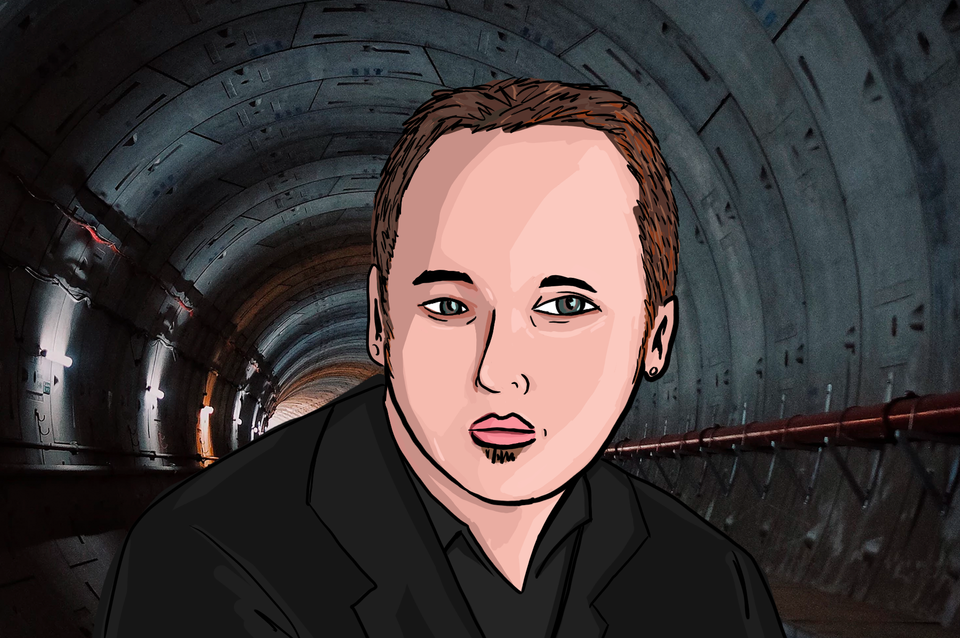Adrián Lamo: Touched by greatness, mired in tragedy

“Adrián Alfonso Lamo Atwood (February 20, 1981—March 14, 2018) was an American threat analyst and hacker.” This is the start of Adrián Lamo’s entry on Wikipedia, now updated to reflect his tragic and untimely death.
It is not for me to go into the details of his life, exploits (pun intended), and foibles. You can read the rest of the Wikipedia entry, if you want to get a salacious sense of those. That said, through personal anecdotes providing tone, color, and substance, I’d like to show the human face behind the “homeless hacker”—the complex and unique character of a longtime friend who lived his life entirely on his own terms.
Many people in the hacker community thought of Adrián as a traitor for turning in Chelsea Manning. No amount of humanizing his life will change their minds, and the same is true for those who viewed him as a hero for the same reasons. To this, I can only add a proverb that Adrián knew all too well: Excusatio non petita, accusatio manifesta. A guilty conscience needs no accuser.
The guilt he felt for his intensely debated decision was profound, even though he felt that it was the right thing for him to do. He realized exactly what he was giving up and went ahead with it because he felt that it was his only ethical choice.
His ability to penetrate networks with skill and speed was something I always marveled at. He never defined himself as a “white, gray, or black hat” hacker; he simply was a hacker.
Adrián followed his conscience and paid a terrible personal cost. He had already been labeled the “homeless hacker,” a legendary shadowy figure who penetrated computers at The New York Times and other major institutions through a unique combination of technical and social-engineering skills. Now his fellow hackers, who made up the only community he had in 2010, regularly and ferociously ostracized him.
When Adrián and I first met, we bonded over any number of intellectual and personal pursuits. We shared a love for The Prisoner TV series, and the message it conveyed to never give up, never give in to the establishment, and to live life according to a personal-centric moral code. We also discussed philosophy, from Socrates to Kant. He always took it upon himself to learn and grow, but never at the cost of being owned or indebted to a company, government, or individual.
Adrián could be incredibly charming among those he felt comfortable with. He enjoyed wrestling with verbal nuance and teasing out an unexpected, often brilliant exposition of truth—forcing me to constantly challenge my accepted ideologies. He was on the autism spectrum, and had difficulty getting close to people with whom he didn’t share commonalities. He could also be brusque, even cold to those who had never earned his respect. But his politeness was legendary, and his moral center (as he defined it) was always rock-solid.
As to his hacking skills—these were undisputed. His ability to penetrate networks with skill and speed was something I always marveled at. He never defined himself as a “white, gray, or black hat” hacker; he simply was a hacker.
While it’s too late to change our collective treatment of Adrián, it isn’t too late to gain an understanding of and appreciation for his very complex humanity.
After the Manning incident, Adrián’s life began a steady, sad, and inexorable downward spiral. We kept in touch less and less over the years, though I did my best to remain a friend and source of support. His knowing grin was less prevalent, the sadness in his eyes palpably growing year after year. Yet despite every challenge thrown at him, his light, intellect, and unyielding insistence on never compromising his ideals remained.
In the end, Adrián’s passage in the heartland of Kansas was perhaps the best metaphor for his life—cut short, unexpected in locale, unknown in many details, and probably alone. In his 37 years, he impacted thousands, perhaps millions, of lives in profound ways ranging from right to wrong, all dependent on your point of reference.
The real tragedy of Adrián’s life was not his homelessness, his bitter disappointments, or his personal life decisions. He owned his life choices, for better or worse. The true tragedy is how we, as a collective society, used and discarded him—barely acknowledging that his sacrifice in turning in Manning was without any doubt the most difficult and courageous of his life.
We turned our backs on Adrián because he wasn’t easy or even quantifiable. He could not be reduced to a simple phrase or intuitive impression. We turned our backs on him because his foibles, his opaque nature, and his moral code did not easily match our societal norms.
While it’s too late to change our collective treatment of Adrián, it isn’t too late to gain an understanding of and appreciation for his very complex humanity. So if I were editing the top of his Wikipedia page, I’d update it to this:
“Adrián Alfonso Lamo Atwood (February 20, 1981—March 14, 2018) was an American threat analyst and hacker. He was also a man of unique nature, complicated in his mores, haunted by guilt through a world-changing circumstance thrust upon him without warning and that, in the end, he chose to own. His life was touched by greatness, mired in tragedy, and his early death robbed him of the opportunity to achieve so much more that would have further shaped his unique legacy.”
I will miss him very much.
